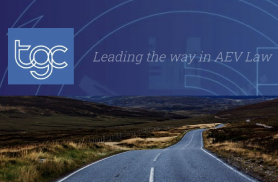The Automated Vehicles Bill 2023-24 has had its first reading in Parliament (with its announcement in the House of Lords as HL Bill 1 on 8 November 2023) and is expected to pass into law as the Automated Vehicles Act 2024. It complements and will amend some terms of definition in the already-enacted motor insurance statute for automated vehicles, Part 1 of the Automated and Electric Vehicles Act 2018.
There are numerous regulation-making powers under the AV Bill (and a duty to consult representative organisations before regulating: clause 97(2)). The AV Bill sets a rigorous regulatory scheme affecting not only automated but advanced vehicle technologies, including statutory inspection of vehicles and criminal offences which can be committed by using non-permitted terms or language ‘likely to confuse’ as to autonomous capability.
The AV Bill presents an expansive regulatory scheme. It expands the lexicon for automated vehicles (after a period in legal exile, ‘autonomous’ is back). It introduces to automated vehicles the practice of official accident investigation practised in marine, rail, air and space transport. It expands the reach of safety regulation beyond roads (in the powers of statutory inspectors to investigate automated vehicle incidents under cl 62(3)) and has an armoury of criminal offences governing conduct including the unlicensed use of unauthorised automated vehicles (cl 53) and misleading marketing of non-automated systems as automated (cll 78-81).
The AV Bill also provides the Secretary of State with an important – and arguably overdue – power to make regulations to amend or impose new type approval requirements not only for automated vehicles but also for vehicles with advanced driver assistance systems – ‘any other type of vehicle that (i) includes equipment designed to allow its motion to be controlled other than by an individual in it, or to facilitate its being so controlled, or (ii) is designed to incorporate or interact with software’, as cl 91(1) puts it.
The AV Bill does not extend to ADAS systems the rigorous, in-use safety regime policed by statutory inspectors which it applies to automated vehicles, but it nonetheless brings a new proactivity by central government (statutory inspectors must, notably, be civil servants: cl 60(2)(a)) to the authorisation and safety regulation of motor vehicle technologies.
The regulation of smaller electric vehicles such as e-scooters (whose legalisation was promised in the Queen’s Speech in May 2022 then postponed) did not appear in any other Transport Bill in the King’s Speech in November 2023. That is still awaited. But 2024 will see a flurry of regulations for both advanced and automated vehicles under what will become the Automated Vehicles Act 2024.
Temple Garden Chambers‘ transport barristers have two books due for publication in early 2024, now available for pre-order: Bingham’s Personal Injury and Motor Claims Cases (Lexis Nexis, edited by Anthony Johnson and written by TGC barristers) and Advanced, Automated and Electric Vehicle Law by Alex Glassbrook (Bloomsbury Professional).




